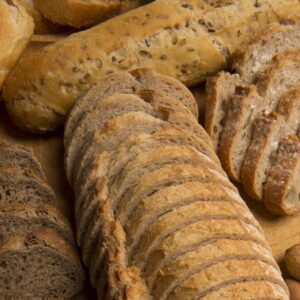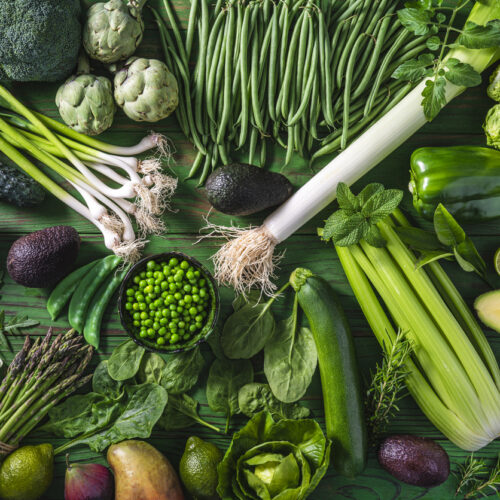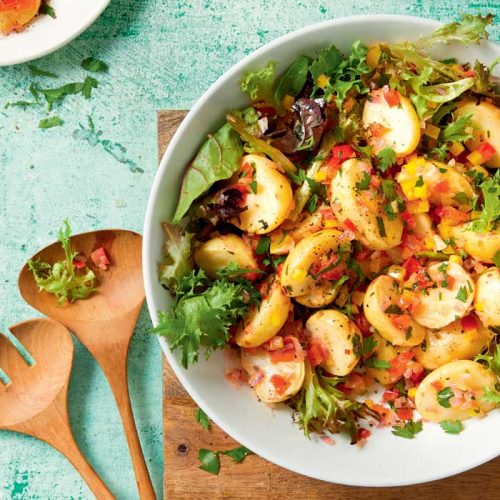
Carrying on from previous blogs, here are even more reasons why we have to ‘swim against the tide’ to achieve and maintain a healthy weight.
Today, eating is more of a pastime than a way to keep ourselves nourished
David Kessler, in his book The end to overeating, describes eating as ‘eatertainment’ – eating as a way to fill in time and pass the day rather than about nourishment. Such eating challenges the three-meals-a-day pattern and plays havoc with kilojoule intake and appetite control. As Kessler explains, “the satiety mechanism that takes place between meals cannot take place if you eat constantly” and “generally, snacking occurs without compensatory kilojoule restriction at meal times – people do not eat smaller breakfasts, lunches or dinners just because they snack throughout the day”.
One of the reasons the French stay slim while still enjoying rich foods is that they eat three structured meals with nothing in between. They also eat small portions, sit down and take time to fully enjoy the food they eat.
Portion sizes are increasing
The profit-driven economy is a hungry machine. Advertising hooks us on to nutritionally bereft processed foods then encourages us to eat more of them to maintain profits. Portion sizes first began their march upwards in the 1970s when a certain fast-food company found that hungry patrons felt greedy buying two small serves of fries but were more than happy to buy the same quantity if sold in a single bigger portion. Since then we have seen portion sizes creep upwards, and as bigger servings become normalised we become more accepting of even larger portions and less satisfied with smaller. This can be clearly seen now in New York where the mayor, Michael Bloomberg, has put a cap on the serving sizes of soft drinks sold in hospitality outlets. The 16oz cap (around 500mls/2 cups) seems a perfectly reasonable upper limit for one serving, yet the outcry across the board demonstrates how normalised super-sizes have become!
We only need to look at muffins to see how portion sizes have increased. The giant muffins we see in cafés everywhere are not a single serve, yet they are regarded as such by those who eat them (“I only had a muffin…”). The truth is they are equivalent in kilojoules to two regular muffins (like our Mum used to make) or six mini-muffins. If, as is often the case, they are packed full of chocolate and topped with cream cheese icing, they are likely to deliver more kilojoules than a decent meal!
Stress levels are soaring
Stress can promote fat storage even without a large kilojoule intake. This is a survival response – when we are threatened in any way the body reacts by conserving energy. This means tucking as many kilojoules as it can into fat stores and hanging on to those stores tightly in case times get worse. Getting on top of stress can be one of the best ways to prevent weight gain.
We are not getting enough sleep
With the heavy demands of life, many of us struggle to get the seven to eight hours of sleep we need each day to stay well. This can play havoc with our levels of ghrelin and leptin, hormones related to appetite and food intake.
Grehlin stimulates appetite; the more you have, the bigger your hunger. Lack of sleep has been found to stimulate levels of ghrelin. Leptin tells the body it has had enough to eat. Not enough signals the body is starving and needs food. Insufficient sleep has been found to lower leptin levels, thus stimulating the appetite. Aside from affecting hormones, the less you sleep, the more time you have to eat!
We are losing intuition around food
Over-eating throws into chaos the intuition and skills we need to stay well. The more non-hungry eating we do, the less we recognise what true hunger is and the more difficult it is to stop eating. And as we become addicted to increasing doses of fat, sugar and salt, we no longer appreciate or want the delicate and more subtle flavours of foods that keep us healthy. We gain weight and we don’t feel good; we eat more to make ourselves feel better; and so the vicious circle continues. We then grasp for the only solution we know, the diet.
Anyone who has tried them knows that diets do not work long-term. So should we give up and do nothing? The answer of course is no, but that’s a story for another blog!
Bronwen
www.healthyfood.com










